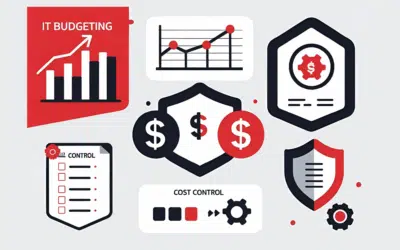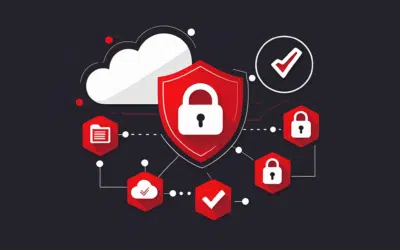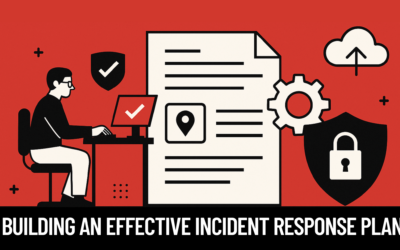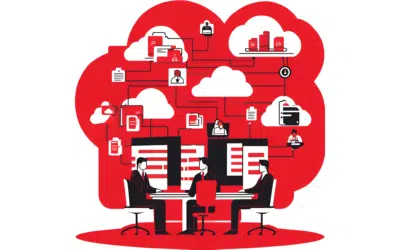Many organizations we talk to are starting to conceptualize their next server upgrade. Here are some common questions we get.
[list style=”bullet”][li]Do I need a server?[/li][li]What about the cloud?[/li][li]Is there a less expensive way?[/li][/list]
These are all good questions. The answers can depend on your needs.
Do I need a server?
The general purpose of a server is to deliver functionality to users, typically in the local office.
If you are only storing files and don’t have applications installed on the server, you may be able to use a cloud-based file sharing and sync tool and move away from a server environment.
[list style=”bullet”][li]If you need to run a database like Microsoft SQL to support a CRM, billing, or other application, you need some type of server. That may be in your office or possibly in the cloud.[/li][li]If you have security or compliance requirements for your business, you may require a server for Active Directory or other security-related services. Some of these are now available in a cloud form as well.[/li][li]If you have poor Internet access and no other Internet options, then you may need to keep a server on-site until better connectivity options arise.[/li][/list]
What about the cloud?
Ultimately, if you do move away from a local server, you will likely need to replace the services it provided with something, most often from the cloud. There are a variety of options for cloud services to meet business needs. Email, file sharing, application hosting, and full server environments are common scenarios that can be deployed together or individually depending on your needs. It’s not unusual for clients to take a hybrid approach as well, with a smaller server on-site for specific purposes, but general services like email moved out to the cloud.
Is there a less expensive way?
The cloud may be a less expensive way to get what you need. It’s a common misconception that the cloud is always less expensive. It gets a bit messy if you try to compare cloud services directly to an on-site server. In particular, the cloud has more value in mobility, accessibility, and high availability than you could usually build into an on-site scenario cost-effectively. The pricing may end up looking similar or a bit more for the cloud at times, but there are typically additional benefits that don’t always show up in a direct comparison. These benefits may show up as a cost savings in a different bucket than you may traditionally look at when talking about IT, as they have an impact on how your business operates and potentially how you deliver your services or goods to your own clients.
For some clients, ongoing monthly operational expenses (for cloud services) are better suited to their business than a larger capital expense every 3-5 years (for a new on-site server). That discussion is where we defer to your CFO, Controller and/or tax professional for fiscal advice.
Ask questions!
Ultimately, you need to be asking the questions above, and a few more. Axxys would be happy to sit down and guide a discussion in the form of an assessment to evaluate your needs today and into the future. The path you go down is your decision, and we can help you make that an informed decision.








